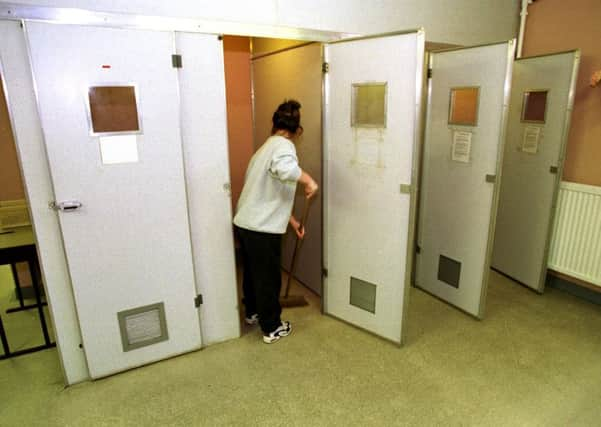Serving time is not the answer for Scots women


In January this year, Michael Matheson, the cabinet secretary for justice axed the Scottish Government’s plans for, what had become known as, a “women’s super-prison” at HMP Inverclyde in Greenock. Whilst the Scottish Government was pilloried for what was widely seen as a U-turn in the media, the social work profession, amongst others was relieved.
In 1993, the then home secretary Michael Howard proclaimed “prison works”. Speaking at the Tory party conference, Mr Howard explained “we shall no longer judge the success of our system of justice by a fall in our prison population”.
Advertisement
Hide AdAdvertisement
Hide AdWe are a long way from 1993. Knowledge, understanding and policy have moved on. And, with a stop being put on this huge expansion of the women’s estate, we have a real opportunity to rethink what we do with women who are in the criminal justice system.
The opportunity here is to do something better, to think differently and that needs to start with something as basic as language. We call women in prison, or women on a community payback order “offenders”. Why do we choose this label? A label that, if we think about it, applies to most of us. Have you ever driven above the speed limit? That’s an offence, no matter if you were caught and prosecuted for it or not.
If we take the label away, if we think of “women offenders” as women or simply just people, that’s a good place to start. It allows us to rethink and refocus what our reaction should be when people do something wrong. We no longer focus on just the “offence” we focus on the whole person. When we think of women as offenders, we think of them in terms of punishing them for their crime. If we think of women who commit a crime as people first and foremost, we can focus on doing the things we know reduce re-offending and change their behaviour.
Isn’t that what we really want? People to stop offending. We know that most women who go to prison go for a short time for low-level offences end up back in prison, usually within two years. Labelling them as “offenders” and locking them up, doesn’t work. Building a super-prison, was never the way to stop offending. It is an easier, short-term answer, but not the effective one.
The right answer is to look at women in the criminal justice system and see not offenders, but individual, troubled women: women who have almost always had disastrous experiences. Many have been abused or neglected and been in care when they were young; they may be mentally ill or have a history of drug and alcohol use; women who need someone to see them as an individual and support them to lead the life they want to. The women who were the children our society failed to protect, are now seen as the offenders solely responsible for the damage they do.
Russian novelist Fyodor Dostoevsky famously said that “the degree of civilisation in a society can be judged by entering its prisons”. The women in our prisons should be those who have committed serious offences, who deserve to be punished and from whom the public needs protection. Prisons should not be full of women who are victims.
There is another way. Lots of other ways in fact, but the key is in treating women as people first, recognising their strengths and working with them to get them to a place where their lives are stable and sustainable; where their addictions are treated and the reasons for them are addressed; where their children are cared for; where the cycle is not repeated. As our politicians consider their position on penal policy, through the Community Justice (Scotland) Bill women need to be a key concern. Women, not offenders. Politicians must find the courage to move away from a view that anything other than prison is an easy option, or is letting people off. You do not “walk free” from court if you must do a community sentence. It is tougher and more effective than a short stay in jail.
U-turning on the women’s prison wasn’t an easy decision, but it was the right one. Equally, turning your life around is hard, but supporting women in the criminal justice system to do this is the right thing to do.
• Alistair Gaw is president, Social Work Scotland, www.socialworkscotland.org